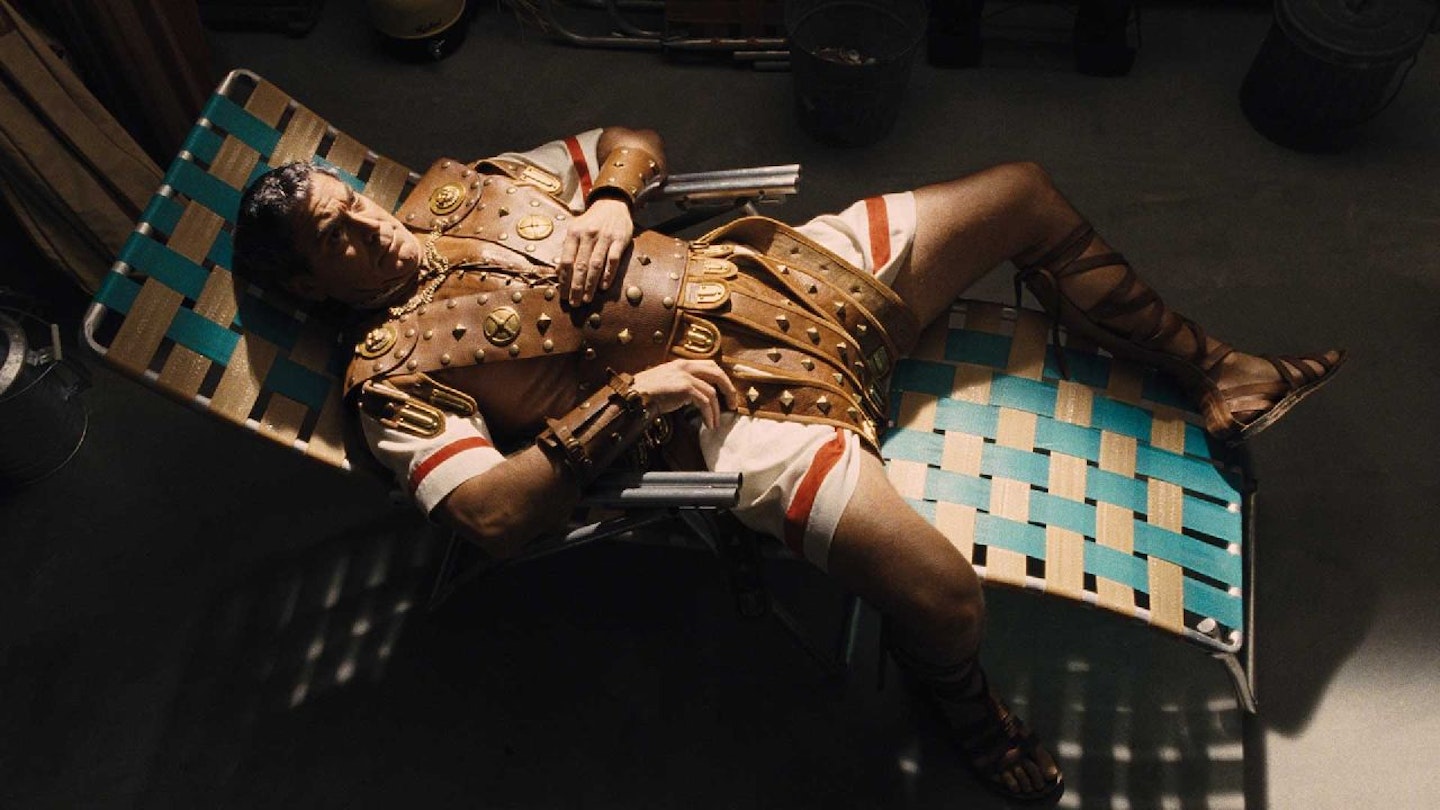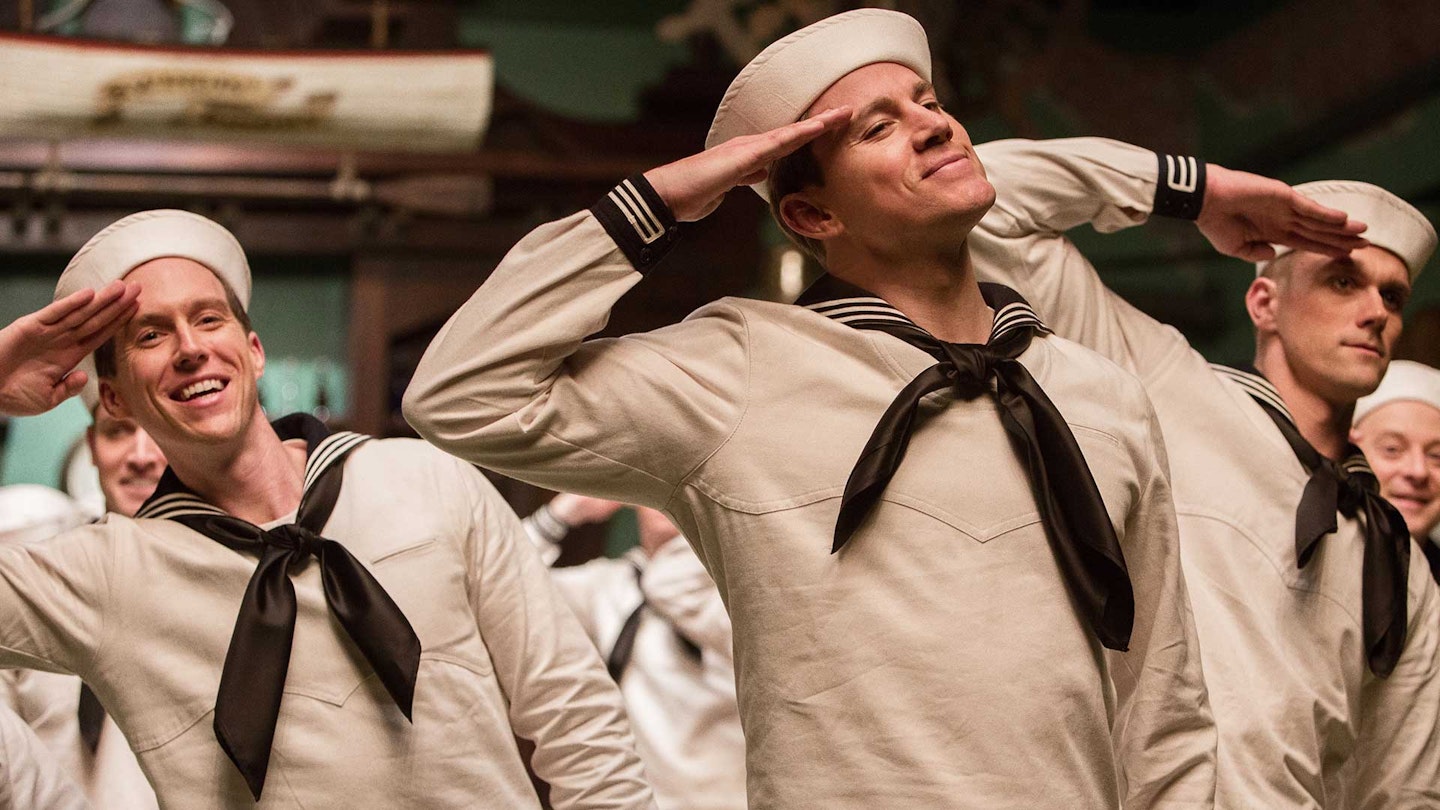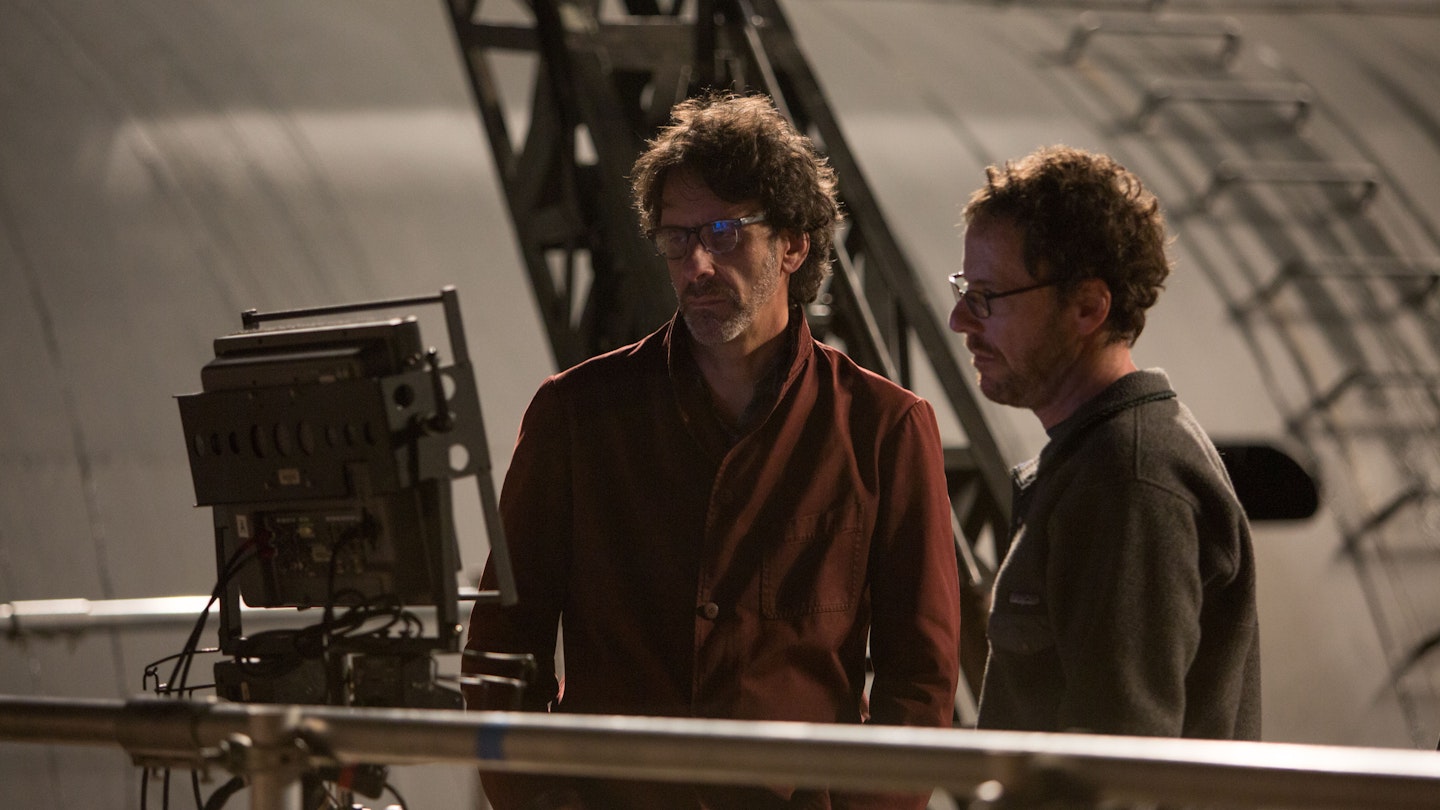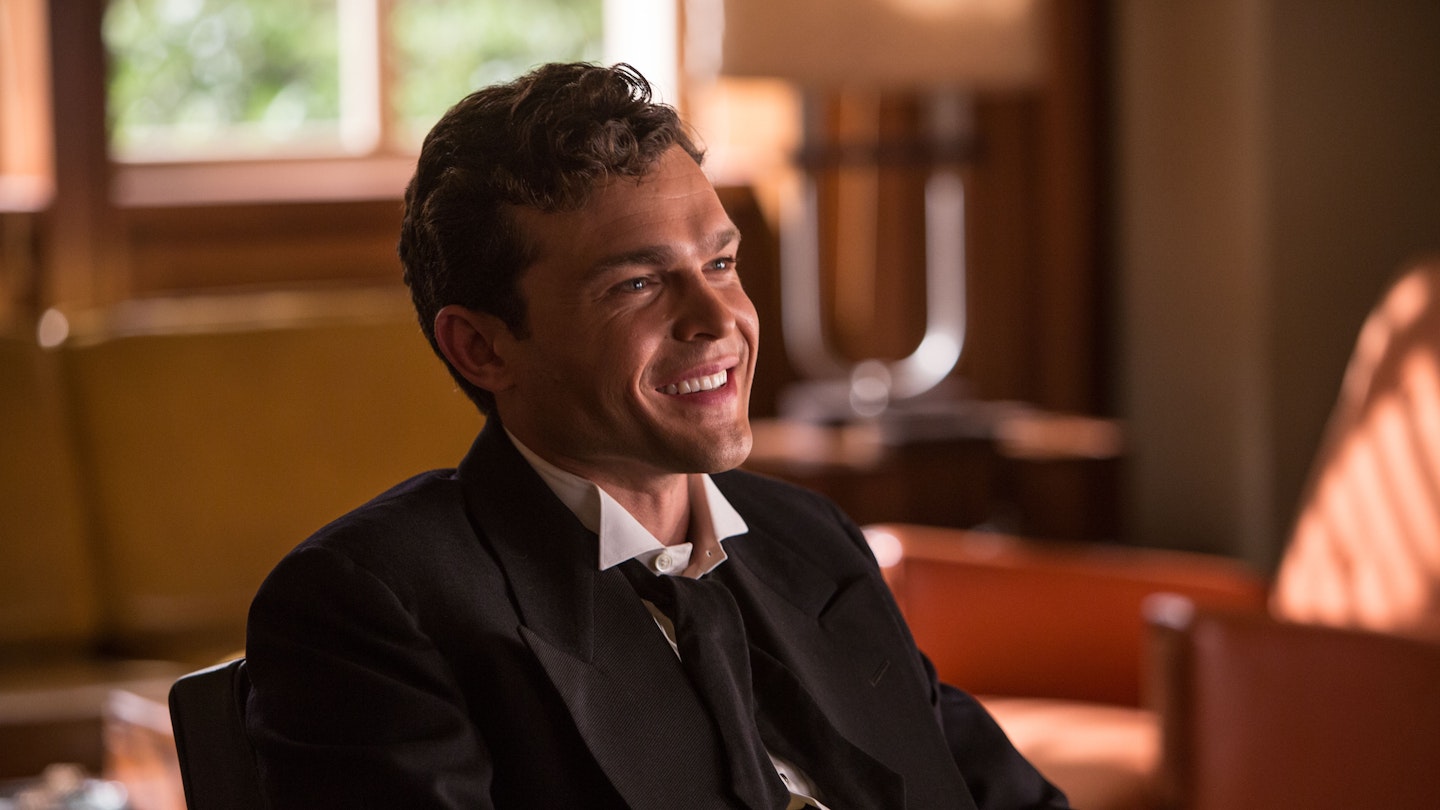If self-plagiarism were a criminal offence, the Coen brothers would be facing a long stretch in San Quentin.
Hail, Caesar! shares the Hollywood-studio setting of Barton Fink, and, no doubt to the delight of Coenverse theorists everywhere, the exact-same fictional studio: Capitol Pictures (they’ve come a long way from Wallace Beery wrestling flicks). Its plot, such as it is, hangs loosely on a kidnapping hook, just like The Big Lebowski, whose Busby Berkeley dream sequence also finds good company in Hail, Caesar!’s elaborate musical numbers. It’s slathered with the ’50s period sheen of The Hudsucker Proxy, tussles with similar existential issues to A Serious Man, and gathers a sprawling ensemble of big names in character-actor roles, as Burn After Reading did. There is an ill-fated suitcase full of money, a shouty fat man, a little yapping dog, philosophical monologues from an eccentric white-hair, and George Clooney mugging.
If self-plagiarism were a criminal offence, the Coen brothers would be facing a long stretch in San Quentin.
Though it’s not really Clooney’s film. As kidnapped matinée idol Baird Whitlock, another George-shaped Coen creation who’s two steps behind the rest of the room, he is merely their MacGuffin; like the baby in Raising Arizona, only not as smart and a touch more helpless. It’s Josh Brolin as Capitol’s Head Of Physical Production, Eddie Mannix, who drives things — albeit not always using the most direct route.
Mannix, the closest thing this movie has to a main character, is another of the Coens’ serious men. A fixer for the studio, there’s a little of Tom Regan from Miller’s Crossing about him, though he’s armed with petty cash rather than a pistol. He will do something as objectionable as slapping an actress for taking part in an unsanctioned photo-session, but is also wracked with Catholic guilt over lying to his wife about quitting smoking. And there’s a greater temptation than tobacco: a big-time job offer from aerospace company Lockheed. “Aviation is serious,” he’s told. “You won’t be shouldering a load of crackpot problems.” But Mannix — played by Brolin as a charming bruiser who’s not quite as unflappable as he’d like people to think — thrives on the crackpot problems.

Of which Whitlock’s disappearance is but one. There’s also the matter of cherub-faced B-Western star Hobie Doyle (Alden Ehrenreich) being roped into a pristine, drawing-room drama, to the despair of its mannered English director, Laurence Laurentz (Ralph Fiennes). Then there’s the Esther Williams-ish mermaid (Scarlett Johansson), facing the scandal of being both pregnant and unmarried. Plus, rival twin-sister entertainment columnists Thora and Thessaly Thacker (Tilda Swinton, tasked with basically playing a double Hedda Hopper who’s at war with herself) are on Eddie’s back, too.
It's likely to fry the mind of anyone who hasn’t yet built up a resistance to the brothers’ foibles and predilections.
This is the Dream Factory operating at maximum productivity, and Joel and Ethan revel in the absurdities of the studio system, whereby directors can’t pick their stars, and stars have to change their image at the wag of a fat finger and date who they’re damn well told. On the one hand, the brothers are snickering at the silliness of how things used to be, but on the other they are celebrating this bygone Golden Age. Because, beyond all the trademarks, gags and Georgian gurning, what Hail, Caesar! essentially amounts to is a series of impressively mounted pastiches.
There’s the Johansson-centred synchronised-swimming sequence, featuring a giant, mechanical whale. There’s a full-on, astonishingly inventive song ’n’ dance number featuring a tap-dancing Channing Tatum and a bunch of sailor-boys lamenting that “We Ain’t Gonna See No Dames”. There’s cowboy Doyle’s latest picture, a twee Western named Lazy Ol’ Moon, complete with a cantankerous prospector-type. And there’s Hail, Caesar! itself, which glows convincingly with all the grandeur and pomposity of a true, old-school Hollywood epic. In each case, the Coens’ A-crew (including Mary Zophres on costumes, Roger Deakins as DP and Carter Burwell scoring) nail the genre perfectly. It’s an astonishing technical achievement.
Where Hail, Caesar! falters, though, is in the glue that binds all these elaborate sketches. Mannix’s travails don’t entwine satisfactorily, and while the flourishes are fantastic, none really move the story forward. It’s clear the Coens aren’t interested in sustaining the sense of mystery at who exactly has starnapped Whitlock, so it’s hard for the audience to care either when the big reveal hits. And, as good as Brolin is, the character lacks the culty appeal of, say, The Dude in The Big Lebowski, whose shambolic nature matched that film’s saggy, shaggy storytelling. It’s not like the film is hollow — hidden at its heart, in fact, is a struggle for the soul of Hollywood — it’s just that it feels more like a series of pleasant diversions rather than a single, solid journey.
That said, if you’re a committed Coenophile (as we all should be, right?), you’re unlikely to be too bothered by all this. Likely to fry the mind of anyone who hasn’t yet built up a resistance to the brothers’ foibles and predilections over the past 16 films, it’s easily the most Coen-y Coen movie they’ve put out. But then, they are stealing from the best.








